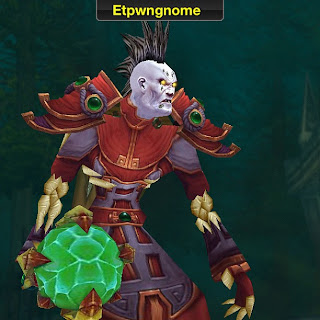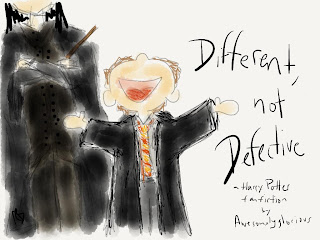Just kidding about that last part.
But, seriously, I knew deep down things were changing. There was a change in the air, a shift in the wind. Life was different, dreams would be deferred: print publishing...was dying.
I read an article in the New York Times that reminded me of all this. It awoke a plethora of feelings as it discussed the merger between two major publishing houses, Penguin and Random House (side note: their new name? Penguin Random House. Which just doesn't have quite the same ring to it). It got me thinking about my destiny (you know, the champagne toasting one) and my past, which I neatly categorized into five original stages* (*these aren't original at all.)
Denial: I came to college with a self-assured faith in books' awesomeness. They're not going anywhere, I thought. Nothing is changing. As long as I believe, they'll last. Just like Santa. So I bought up books by the dozen (silently and secretly resenting the cost of them, but that's beside the point). I stuffed books all throughout my room, ignoring the fire hazard and already plotting out an escape route to save them all in case disaster struck. I hummed and sang as I alphabetized and organized, so impressed by my blossoming library. I thought how, one day, my house would have a room like this:
It was my goal. I thought nothing would stand in my way.
Anger: Then I started really looking into the publishing field. This was a complicated stage, layered like a bitter parfait. I was a starry-eyed sophomore who thought I'd get a book published and make millions with with to travel the world and buy houses. But I found out the dark side of the publishing industry: the sheer cost, the tiny cut an author gets. 7%--if you're lucky? You've got to be kidding me. I considered going to the dark side (e-publishing), but no one takes you seriously after that. It's a field for the rejected, or so the large houses told me. I felt my dreams being crushed, flayed, and laid to wither and die. My print world betrayed me. And yet they in turn ignored the e-world? Who could win in such a horrific world? And so it began: the bargaining.
Bargaining: I began asking for some give and take, even expecting it. there had to be some middle ground, some happy medium where print publishing didn't sabotage and kill itself while e-books won. I mean, why kill print? A Kindle doesn't smell good. It doesn't laugh or cry or sigh with you with each crinkling turn of the page. It won't ever start falling apart, a sign of your devotion. And you definitely can't prove your intellectualism with a kindle--people need to be able to walk into your house, see a room bursting with books, and simply "ooh" and "ahh" over your elitism. But that seems like a world that will never be. Books are expensive, electronic-everything is cheap--it's a match made in heaven. So maybe if the publishing houses would be more open-minded--maybe if I was more open-minded I could accept a truce, a tie, a white flag of salvation. But selling out makes me sad.
Depression: Last year, I thought my world was over. Woe was me. I lost my faith in humanity, asking why--oh, heavens, why--must people always sell out? For three days and three nights, I curled up upon and with my hundreds of books and wept a thousand tears. Just kidding. But it was a dark time. I felt sure the only thing left for me to do was take on the banner and die defending print. I would not let a modern version of Fahrenheit 451 go down. In fact, my future looked to be one of collecting and treasuring printed books, guarding them against the internet locos who wanted them destroyed, sending me trojan horses in the form of Kindles and Nooks. I was ready to die in a pile of tear-drenched pages. It was my destiny.
And then I thought about it.
Acceptance: The inevitable conclusion fell into place. That is, life is changed and I have to deal. It was a settling of fate, a shaking of hands with the devil (that would be e-books, here). Though sometimes I still cringe at the idea of e-books and only e-books, I can't help but agree that they're useful, beautiful, cheaper things that benefit a lot more than just the publisher. The writer gets a larger cut, the books reach more people. And...it saves trees. Not that I really care about that (only joking).
But, in all honesty, I am settled. I know I am walking a path that will not be walked so much anymore. Print publishing is dying. When two of the largest companies consolidate to save themselves and the rest clamber to do the same, it's kind of a sign of changing times. But maybe not so much a sign of the end of the world. As one of the interviewee's point out,
“Regulators generally understand that these companies aren’t just competing with each other, they’re competing with a very changed marketplace.”Ah, yes. A changed marketplace. So I don't have to sacrifice my dreams of being an editor per se. I don't have to give up on fiction and writing and creation. It's just a changed landscape. So maybe I'll still get that champagne-ridden affair.
Just...probably via Skype.



